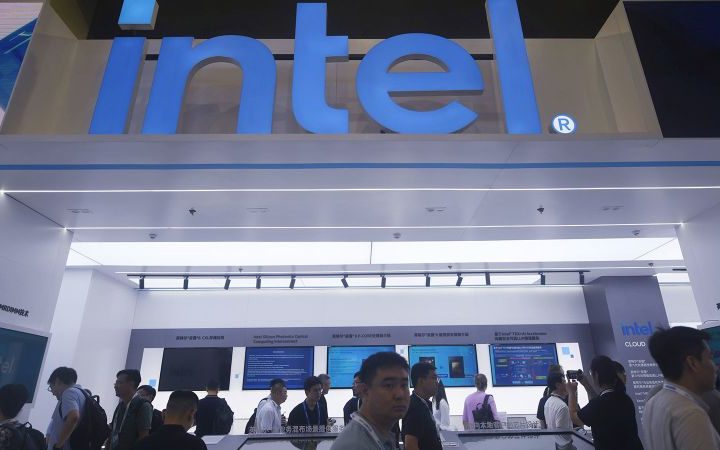False claims that President Joe Biden fell asleep during a moment of silence for victims of the Maui wildfire. A conspiracy theory that the latest surge in Covid-19 cases is being orchestrated by the Democratic Party ahead of the election. An obituary for a late NBA player that described him as “useless.”
These false and bizarre stories aren’t showing up on some far-flung corner of the internet — they’re being published by Microsoft. The company’s homepage, also known as MSN.com and Microsoft Start, remains one of the world’s most trafficked websites and a place where millions of Americans get their news every day.
But Microsoft’s decision to increasingly rely on the use of automation and artificial intelligence over human editors to curate its homepage appears to be behind the site’s recent amplification of false and bizarre stories, people familiar with how the site works told CNN.
The site, which comes pre-loaded as the default start page on devices running Microsoft software, including on Microsoft’s latest “Edge” browser, the successor of the company’s Internet Explorer browser, employed more than 800 editors in 2018 to help select and curate news stories shown to millions of readers around the world.
But in recent years Microsoft has laid off editors, some of whom were told they were being replaced by “automation,” what they understand to be AI.
Microsoft’s early investment in OpenAI —the creators of the buzzy ChatGPT app — has put it at the forefront of the promising and potentially perilous AI revolution even as the tech giant’s president has publicly lectured on the responsible use of the technology.
But the apparent role of AI in Microsoft’s recent amplification of bogus stories raises questions about the company’s public adoption of the nascent technology and for the journalism industry as a whole.
Concerns and tensions about Microsoft’s use of AI in its news content boiled over on Tuesday when Britain’s The Guardian newspaper accused the company of damaging the paper’s reputation after it published an article from the outlet on its site.
To power its highly trafficked news portal, Microsoft has established licensing agreements with major news organizations around the world, including The Guardian and CNN, that allow the tech giant to republish their articles in exchange for a share of the advertising revenue.
Last week, The Guardian published an article about Lilie James, a 21-year-old woman who was found dead with serious head injuries at a school in Sydney, Australia.
James’ murder led to an outpouring of grief and prompted a national conversation in Australia about violence against women.
But when MSN republished The Guardian’s story, it accompanied it with an AI-generated poll asking readers, “What do you think is the reason behind the woman’s death?” And listed three options: murder, accident, or suicide.
The poll prompted criticism from Microsoft’s readers, “This has to be the most pathetic, disgusting poll I’ve ever seen,” one person wrote.
Anna Bateson, the chief executive of the Guardian Media Group, said in a sharply worded letter to Microsoft and obtained by CNN, that the auto-generated poll was a “deeply concerning” application of the company’s AI technology and demanded Microsoft take full responsibility.
“Not only is this sort of application potentially distressing for the family of the individual who is the subject of the story, it is also deeply damaging to the Guardian’s hard-won reputation for trusted, sensitive journalism, and to the reputation of the individual journalists who wrote the original story,” Bateson wrote in a letter Tuesday to Microsoft President Brad Smith.
Bateson said Microsoft’s use of the AI-generated poll alongside the article was “exactly the sort of instance that we have warned about in relation to news” and was “a key reason why we have previously requested to your teams that we do not want Microsoft’s experimental genAI technologies applied to journalism licensed from the Guardian.”
A Microsoft spokesperson said the company was disabling all polls on news articles and said the company was “investigating the cause of the inappropriate content. A poll should not have appeared alongside an article of this nature, and we are taking steps to help prevent this kind of error from reoccurring in the future.”
But the distasteful poll was not the first public blunder caused by Microsoft’s embrace of AI.
In August, MSN featured a story on its homepage that falsely claimed President Joe Biden had fallen asleep during a moment of silence for victims of the catastrophic Maui wildfire.
The next month, Microsoft republished a story about Brandon Hunter, a former NBA player who died unexpectedly at the age of 42, under the headline, “Brandon Hunter useless at 42.”
Then, in October, Microsoft republished an article that claimed that San Francisco Supervisor Dean Preston had resigned from his position after criticism from Elon Musk.
The story was entirely false.
Some of the articles featured by Microsoft were initially published by obscure websites that might have gone unnoticed amid the daily deluge of online misinformation that circulates every day.
But Microsoft’s decision to republish articles from fringe outlets has elevated those stories to potentially millions of additional readers, breathing life into their claims. Editors who formerly worked for Microsoft told CNN that these kinds of false stories, or virtually any other articles from low-quality websites, would not be prominently featured by Microsoft were it not for its use of AI.

Ryn Pfeuffer, who worked intermittently as a contractor for Microsoft for eight years, said she received a call in May 2020 with the news that her entire team was being laid off.
2020 was the year, a Microsoft spokesperson told CNN in a statement on Wednesday, that the company began transitioning to a “personalized feed” that is “tailored by an algorithm to the interests of our audiences.”
As an editor on the site’s lifestyle vertical, Pfeuffer’s job involved choosing and curating stories to feature across Microsoft’s sites.
“We had a really tight knit, super talented editorial team and we had all worked together for a long time,” Pfeuffer told CNN. The group, which included veteran journalists, took their responsibilities as curators seriously, she said.
“I don’t think people realize how many people use [MSN],” she told CNN. “You had to be responsible what you put on the site because so many people would read it and could be swayed by it.”
Microsoft refused to say how many, if any, human editors still work on curating the site or if it is all done by AI and algorithms.
Scrolling through the Microsoft homepage a few weeks ago, Pfeuffer said it appeared unrecognizable to the portal she and her colleagues once curated. Not only have objectively false and outlandish stories been featured on the site, but overtly hyper-partisan articles with headlines like “Should America Get Rid of Biden for Good?” and “A Darker Side of the Catastrophe Unfolding Under Joe Biden” have also gained prominence.
Those stories, which CNN has observed on Microsoft’s homepage, were not published by credible and established news organizations, but instead originated on smaller sites with little or no information about who is behind them or details on their editorial standards.
Pfeuffer said these sites and headlines would never have been featured prominently on the Microsoft homepage while she and her editorial colleagues worked there, and said she was appalled that “they have these websites that seem like facts, that are not legit news sources pumping out disinformation on the homepage.”
“We tried to cover everything very fairly from all sides and not take a political stance on topics,” she told CNN.
It was sensationalist headlines like these that caught the attention of Ferris Kawar, a father of two and sustainability manager in Santa Monica, California.
Kawar’s default web browser changed to Microsoft Edge after a recent software update, and with it his homepage switched to Microsoft.
“It felt like I was standing in line at the grocery store reading a National Enquirer front page,” Kawar told CNN.
“I think Microsoft is a fairly trustworthy company,” he said. “I don’t think of them as political in any way. But this definitely seemed like the content that was being pushed definitely skewed to the right.”
Microsoft and its president Brad Smith have published extensively about the responsible use of AI.
But the company offered very few specifics when asked questions by CNN.
A Microsoft spokesperson said in a statement Wednesday “As with any product or service, we continue to adjust our processes and are constantly updating our existing policies and defining new ones to handle emerging trends. We are committed to addressing the recent issue of low quality articles contributed to the feed and are working closely with our content partners to identify and address issues to ensure they are meeting our standards.”
But in its letter to the company on Tuesday, The Guardian said the tech company “had failed to substantively respond” to the newspaper’s questions about how AI would be used around its journalism.
Kawar’s homepage is no longer Microsoft and he’s changed his default browser back to his preferred option of Google Chrome. But millions of others around the world are still getting their news from Microsoft.
“If they are going to have a front page that is all about news then they should take that responsibility seriously and understand that it has implications for society,” Kawar said.
Read the full article here







